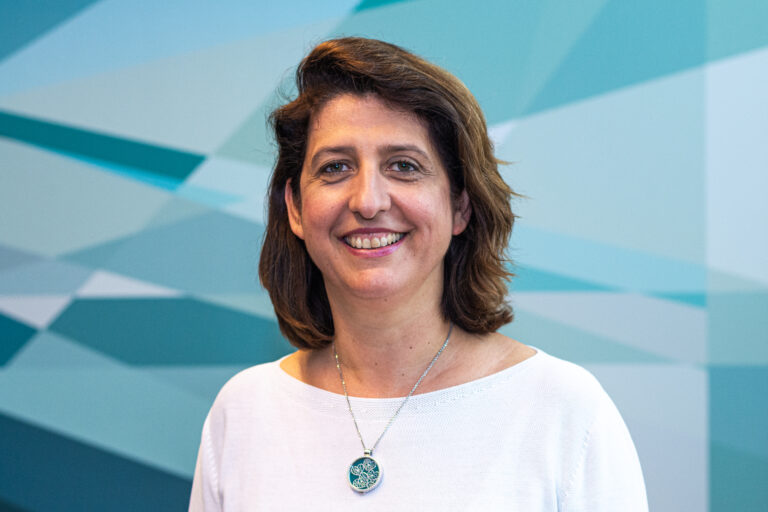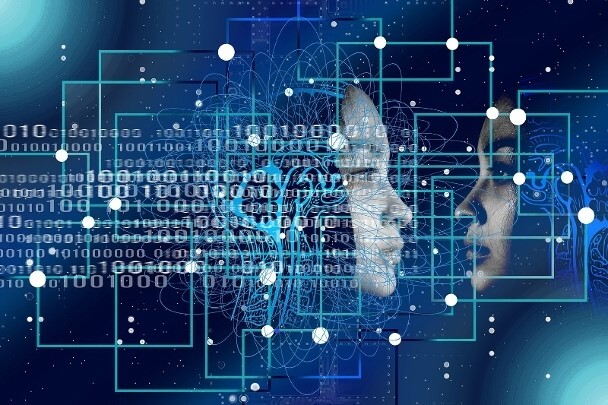The aim of this Small Business Innovation Research (SBIR) innovation competition was to develop and test human-centric AI solutions for society’s challenges within the public sector that address the following three themes:
- The functioning of democracy and the relationship between the public and the authorities.
- The opportunity to improve participation in society.
- Ensuring that AI systems and their implementations comply with human rights.
The SBIR comprises a total of three phases for a specific challenge. The focus in the first phase is on the feasibility of a solution, whereas in the second phase the concept is expanded into a developed product. The third phase is when the developed product is put on the market. For human-centric artificial intelligence for the public sector, twelve companies have been selected who will carry out their own projects between December 2021 and September 2023.
The 12 winning proposals for Phase 1:
1. Serviceheroes B.V. DigiBrief – Opportunity to participate in society
Serviceheroes are developing DigiBrief as a digital solution for automatically converting letters into an understandable text, independent of language and level of education. Letters or photos of letters can be uploaded into the DigiBrief portal, where they are then summarised using OCR techniques and a context-based translation turns them into understandable text for the receiving party. The knowledge-based engine then automatically triggers follow-up actions (e.g. payment) using neural networking techniques. The development of the AI-based DigiBrief platform is letting Serviceheroes boost to the extent to which everyone can participate in society, without needing interventions by family, friends or third parties.
2. Mobile Water B.V. – Social virtual assistant
Mobile Water is a digital-first start-up that is aiming to streamline digital interaction for consumers. Their offering is an AI platform called Nova One that enables digital experiences that are empathic and listen. They provide conversational AI platforms in the form of chatbots and messaging services such as a messaging gateway, incident manager and bulk manager to name a few. The start-up also offers UX management services, but is popular for communication services, chatbots and the messaging gateway. Messaging is an important tool for businesses and Mobile Water takes an approach that is all but identical to gamification. They are an ideal partner for companies that want to incorporate SMS or RCS solutions into their products.
3. d-centralize B.V. – LOQUI: Participation by speech
People with language shortcomings (new Dutch citizens, residence permit holders, people with little education), those who are innumerate or illiterate and blind or partially sighted people all have difficulties with the digitisation of society, and that includes the use of digital government services. The aim of this project is to develop AI-based speech technology – called Loqui (Latin for ‘to speak’) – with which digital tools can be developed so that the vulnerable target groups mentioned above can participate better in society (digitally in particular). To that end, we want to develop a speech control tool in Dutch, English and Arabic through which we can make all digital public services controllable by speech and that will also directly recognise linguistic deficiencies.
4. Technologies B.V. – Vicarious Perception
A manageable debate with AI: video and text AI analysis service to make politics more accessible. Many people have the feeling that politics is remote from them. We don’t have a very clear picture of exactly what is being discussed in politics or at the local council. However, many meetings where important decisions are made can be followed live. Quite understandably, though, there are not many people who do so. We want to use AI analysis to present this information clearly. Combining emotional analysis of voices and faces with a textual analysis of the content of the debate means that the most relevant information for particular members of the public can be selected.
5. Councyl B.V. – A scalable human dimension
Implementing public policy demands fairness, accountability and resource efficiency without losing the human touch. These factors are often forced into a false dichotomy where efficiency gains come at the expense of quality or the human touch. In this initiative, Councyl will develop a practical application of a novel AI approach that can digitise human decision-making expertise in a fully transparent choice model, restoring the human touch while enhancing efficiency. We are aiming to use this project to give a clear picture of our added value, identify hurdles and prove technical feasibility for assisting public policy implementation.
6. 1Zoorobotics B.V. – AI-driven judicial ruling predictor
Access to justice is one of the Netherlands’ great assets, yet at the same time, the costs of legal aid are soaring and the legal system is going to be called upon more and more. AI can be used for a general judicial review in a preliminary phase where relevant ‘events’ are automatically compared against case law using an artificial intelligence environment. It predicts the ruling by comparing hundreds of thousands of public cases on e.g. rechtspraak.nl against the dispute in just seconds. If a foreign national or member of the public has a clearly hopeless case, they do not have to go to court, which will lower the burden on the entire legal system and provide clarity for people immediately. A feasibility project is needed to test whether the AI gives correct predictions for cases in the social courts.
7. DuckDuckGoose B.V. – Explainable AI for deepfake detection
Deepfake technology is attracting more and more attention. Deepfakes have been a reality since 2017 and people can come across them anywhere. Researchers at University College London have called deepfakes the most dangerous application of AI for crime and terrorism. Deepfakes are becoming ever more realistic and ever easier to make. To intercept negative uses of deepfakes, DuckDuckGoose is aiming to develop a clear and explainable AI system for detecting deepfakes. The project as envisaged therefore fits neatly with the third theme of the SBIR call, “Ensuring that AI systems and their implementations comply with human rights”.
8. Datastreams B.V. – Certified Datastreams
Certified Datastreams (CD) is a service for municipalities and other public institutions that need to make their data-driven policies GDPR-compliant. This proposal focuses specifically on efficient data processing. Municipalities have a duty of care and are obliged to make sure that the communal funding is used lawfully. This proposal will let them carry out that task without exchanging identifiable personal data unnecessarily. The case validated in this feasibility study involves the municipality of Uden and the use of Social Support Act passes with the Regiotaxi service. The regional taxi is a supplementary transport service intended for people who can no longer organise their own transport independently, alone or with the help of family or friends. This can be the case if someone is for instance unable to travel by public transport due to a physical disability or limitation or a mental illness. Residents of the municipality of Uden who have a pass can use this additional form of public transport at a reduced rate. This project is developing an innovation that makes efficient exchange of data easy and controllable; where necessary, sensitive data is also secured by means of data protection techniques such as encryption. This creates a scalable and cost-efficient data-driven service that keeps municipal services accessible and affordable for everyone.
9. Lucidminds B.V. – Dataville: Privacy-preserving data sharing
Data is precious for organisations and can give them useful insights into operations and processes, which can add a great deal of value. Concerns about the privacy of data have become an increasingly prevalent issue for organisations, however, and organisations need to protect their data. Lucidminds envisions developing a solution, DataVille, which is a platform that lets organisations analyse, train and manage data organizationally or departmentally without compromising the privacy of the users’ data. DataVille will analyse the use case and type of data, and automatically fit the most suitable privacy-preserving technology to the use case.
10. EDIA B.V. – Legible texts for people with a language deficiency
EDIA develops AI technology that can analyse texts and simplify the reading level needed. Governments and other public organisations can use this to tailor their written communications better to the needs of the public. In particular, people with linguistic deficiencies will have more access to information and be able to participate in society better.
11. Y. Digital B.V. – Mijn OverheidsAssistent
Every citizen is expected to know the law. But laws are complex, so how can you find out which rules apply to your specific situation? You soon end up needing an adviser. And that needs to be done differently: a low uptake threshold, easier, more inclusive.
Implementing organisations face the same challenge. To deal with specific cases, professionals at government authorities have to learn numerous legal rules or look them up in manuals and work instructions. Our goal: to develop Mijn OverheidsAssistent, an AI assistant for working with governmental bodies that tells you which rules are relevant for a specific dossier and makes those rules accessible and applicable. It will first be used to help professionals at the implementing organisations in their work. It can then be trained further and also be available to the public.
12. 2Tango B.V. – Ai.Signs
Communication isn’t a given for everybody. People with autism have difficulty in some situations conveying messages through the directly spoken word. Together with the Neurodiversity Foundation, 2Tango has come up with an innovative concept – called Signs – for helping neurodivergent people to participate in society. This is a new social survival sign language. We now want to develop an application for national and local governmental authorities and the care and education sectors that uses a virtual assistant to remove barriers in the communicative process, plus a unique messenger app that replaces keyboards in online applications to convert gestures into communicative messages (predictive speech).






